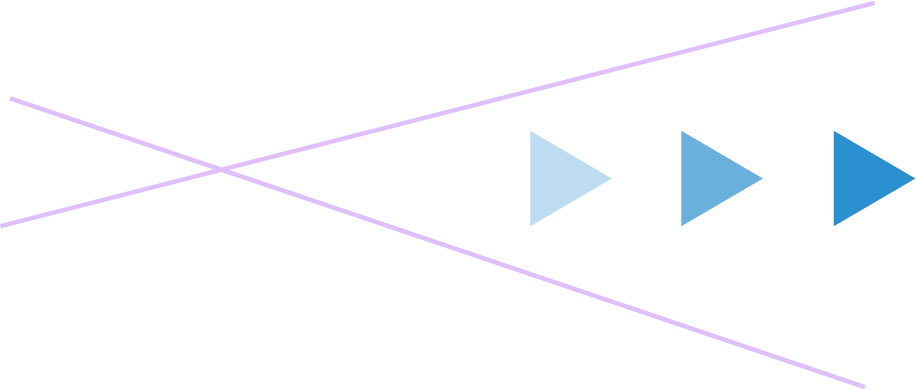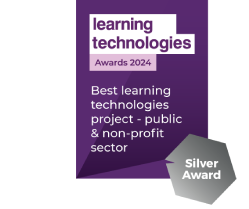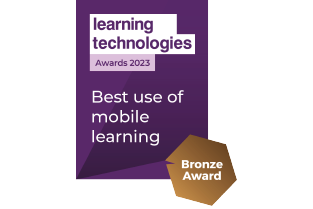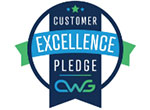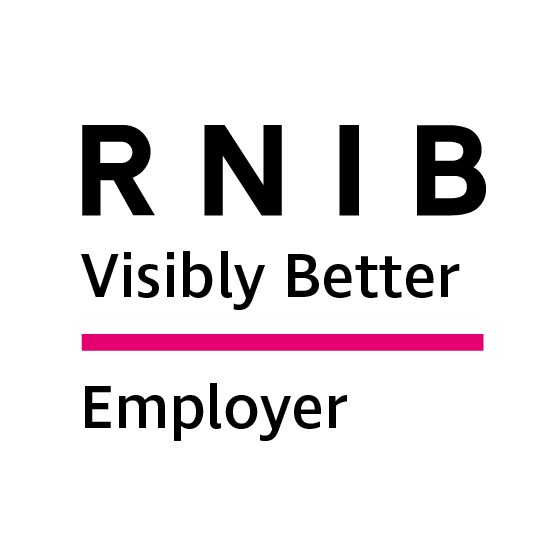Home / Thinking Zone / Curiosity and lifelong learning
Curiosity and lifelong learning
Curiosity is the wick in the candle of learning - William Arthur Ward
In 2022, Sicilian born Giuseppe Paterno gained a master’s degree in history and philosophy at the age of 98 from the University of Palermo. He had always loved books but, like many, was unable to go to university due to his financial situation. Paterno served in the second world war and went on to work on the railways whilst raising a family, but he never forgot his dream. Similarly, Joyce DeFauw of Illnois, completed her degree (online) at the age of 90, during the pandemic, after having been given her first ever computer. Japan’s Shigemi Hirata attended the Kyoto University of Art and Design at the age 96, taking eleven years to complete his degree in ceramics.
Posted 20 November 2023
All three of these lifelong learners had been away from formal education for nearly seventy years but shared the same sensibility that you should ‘never quit learning’. None of them were studying to just get a qualification, but were pursuing their internal driver for completing something they’d started decades ago, and all referenced their innate curiosity for learning and development which had never gone away.
These examples and many others like them beg the question of whether learning and skills development always have to lead to something else, such as a job or academic result? Obviously in lots of cases, these are desirable and essential outcomes - but what if, at a deeper level, Lifelong Learning could simply be described as an unending relationship with curiosity?
Maybe we are all learning every single day, just by being alive.
Children are born curious and anyone who has ever spent time with a toddler will not be surprised to hear that at their peak, little ones between 14 months and 5 years can ask an average of 107 questions an hour! Dr Prachi Shah, a developmental and behavioural paediatrician says this: ‘promoting curiosity in children, especially those from environments of economic disadvantage, may be an important, under-recognised way to address the achievement gap. It is a foundation for early learning that we should be emphasising more when we look at academic achievement.’ [1] But many experts in the field think that our current education system is actively killing curiosity because of its focus on meeting academic targets.
Was Einstein right when he said, ‘It is a miracle that curiosity survives formal education’ ?
When linked with lifelong learning, curiosity actually seems to have associated health benefits for the individual and society as a whole; indeed, UNESCO and and the Council of Europe described it as involving a fundamental transformation of society so that the whole of society becomes a learning resource for each individual”[2]
On this basis, surely our learning providers should be encouraging it in everything they do? It has been well documented that when we are very curious about something, the pleasure centres of our brains light up – we literally get the same dopamine reward as if we had consumed a bar of chocolate![3] Being curious enough to find out more about something fosters motivation, problem solving, critical thinking, adaptability and engagement – in short, all the building blocks which are part of learning and development.
From the cradle to the grave we are learning, but so often it is put into a separate category, as opposed to being regarded as an innate ability. The concept of learning should not be a cloak that we only wear within formal education or training; but a state of mind - a place for us to inhabit and be curious. What we choose to do with this later in life is up to us – but the building blocks of learning are there from birth, and some of us might even return to it after a gap of several decades – it is truly never too late!

According to Dr Jack P Shonkoff, getting a child ‘ready’ for formal education is a myth. His view (and that of many others in the field) is that babies and children are already learning through curiosity in an integrated way, very early on. The innate connection between sensory exploration, observation, trial and error and cognitive development means that learning, like curiosity, is simply ‘baked in’ to our progression through life. Even in the womb, learning seems to have a part to play and it has recently been discovered that the developing foetus can distinguish between its mother’s language rhythms and that of a different language.[4]
Shonkoff also makes the crucial point that ‘all important learning takes place within the context of play - play is where we try out things and develop a sense of mastery of the world’. Through play with parents and carers, he believes children develop what has been coined the ‘serve and return’ pattern. This natural form of communication is a two-way interaction: the baby smiles or makes a noise – the parent or carer responds positively; the baby points at something and the adult engages – and thus a whole host of needs are met, with learning, curiosity and skills development all being reinforced.[5]
It seems safe to say then, that Learning and Play are inextricably linked – and similarly, so too are Learning and Skills. Can we ever separate the concept of learning with skills development? From infancy, our learning and skills develop in tandem – think of learning to walk, talk and communicate – all of them require an interconnected approach of problem solving, curiosity, learning and cognitive development. Fast forward to those entering the job market and we can see the very real need for flexibility with comparatively few having the traditional ‘job for life’ model anymore. As the global population ages, we can now expect to work longer and may need to change careers more frequently. Economic security will come from having the ability to maintain and renew the right skills through lifelong learning.
Developing skills in all areas is not just aspirational, but a necessary and positive driver for change because the capacity to carry on learning throughout one’s life is a valuable asset which can contribute to personal fulfilment, skills development and societal progress. In a rapidly changing world, the ability to learn and adapt is crucial and with today’s technological advances, there are a myriad of ways to do this. We might even wonder about the changing face of academic learning verses skills development – how much is the balance shifting as we navigate through a complex learning landscape?
Perhaps the shape of learning is changing because of skills gaps in many areas, or perhaps we should be working to maintain a space for everyone, by incorporating the right mix of abilities, skills, qualifications and understanding.
The Collins English Dictionary definition of lifelong learning is: continuous development and improvement of the knowledge and skills needed for employment and personal fulfilment.
This idea of personal fulfilment may seem rather luxurious to those who are struggling to make ends meet, but there is an association between increased levels of learning and reductions in self-reported depression and GP visits[6], and it has been argued that education in prisons ‘is one of the pillars of effective rehabilitation’. Furthermore, adult learning can actually reduce reoffending rates for different categories of prisoner.[7] It is also well established that learning a language, painting, or taking up a new musical instrument in older age can reduce the risks of dementia related illnesses. It has even been said that adult education may reduce racism, and increase civic participation and voting.[8] Put all of this together with our ageing population, and the associated increase in cognitive ill-health, the benefits of lifelong learning could be significant, regardless of the need for qualifications.
The first lifelong learning institute began at The New School for Social Research (now New School University) in 1962 as an experiment in "learning in retirement" and many will now be familiar with the U3A – the University of the Third Age – an international organisation which aims to engage those in their ‘third age’ in learning of all types. There is no minimum age for joining – just a focus on those people who are no longer in full time employment and/or no longer raising a family.
As we age, we inevitably go on learning through experiences; who can discount the discoveries which come via relationships; living with choices, spirituality, illness or challenge? Bereavement and major life events can teach us far more than any conventional learning we may have acquired along the way - the ‘school of hard knocks’ may have been one of our greatest teachers!
Similarly, the informal learning we acquire throughout our lives comes in many forms and is a constant for us every day - whether we engage with it or not. In our internet and AI age, answers and engagement are instantly available to us should we ever have a question – how many times a day do you say ‘I’ll just google that’? As Donald Clark points out, ‘Learners are increasingly finding immediate answers online via consistent interface and layout’. [9]
If there could be any message to internalise around lifelong learning, it should surely be that it is always available to us and can take many forms – as long as we stay curious.
In the immortal words of Goethe, we could perhaps contemplate the maxim that,
‘Mere curiosity adds wings to every step’.
[1] https://www.theguardian.com/education/2020/jan/28/schools-killing-curiosity-learn
[2] Cropley,1979
[3] https://www.cell.com/neuron/fulltext/S0896-6273(14)00804-6
[4]https://journals.lww.com/neuroreport/abstract/2017/08010/fetal_rhythm_based_language_discrimination__a.4.aspx
[5] https://www.unicef.org/parenting/child-development/building-babies-brains-through-play-class
[6] Dolan et al; Coates 2016
[7] Ministry of Justice, 2013
[8] Feinstein et al 2008
[9] Learning Technology, Donald Clark.
